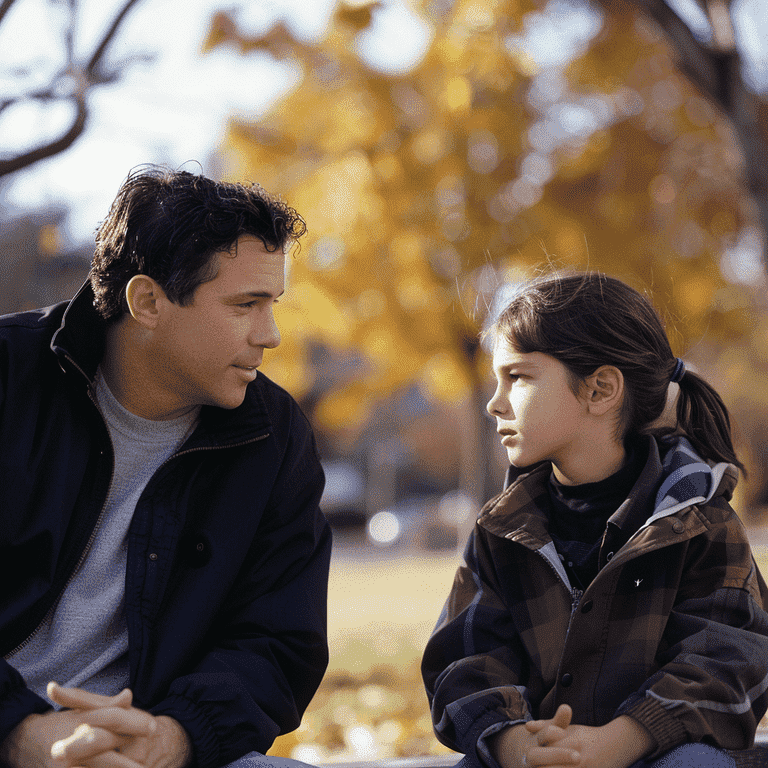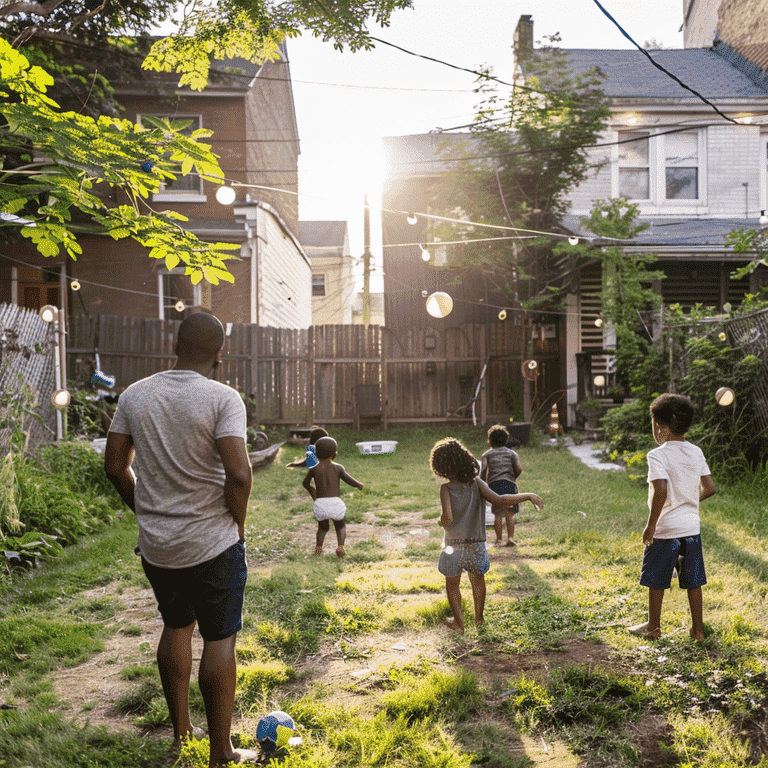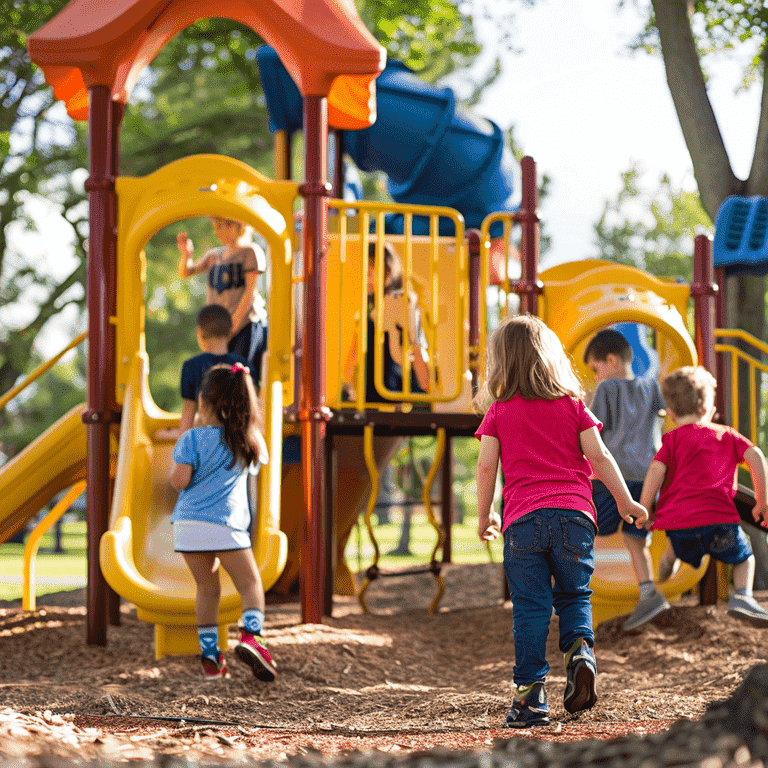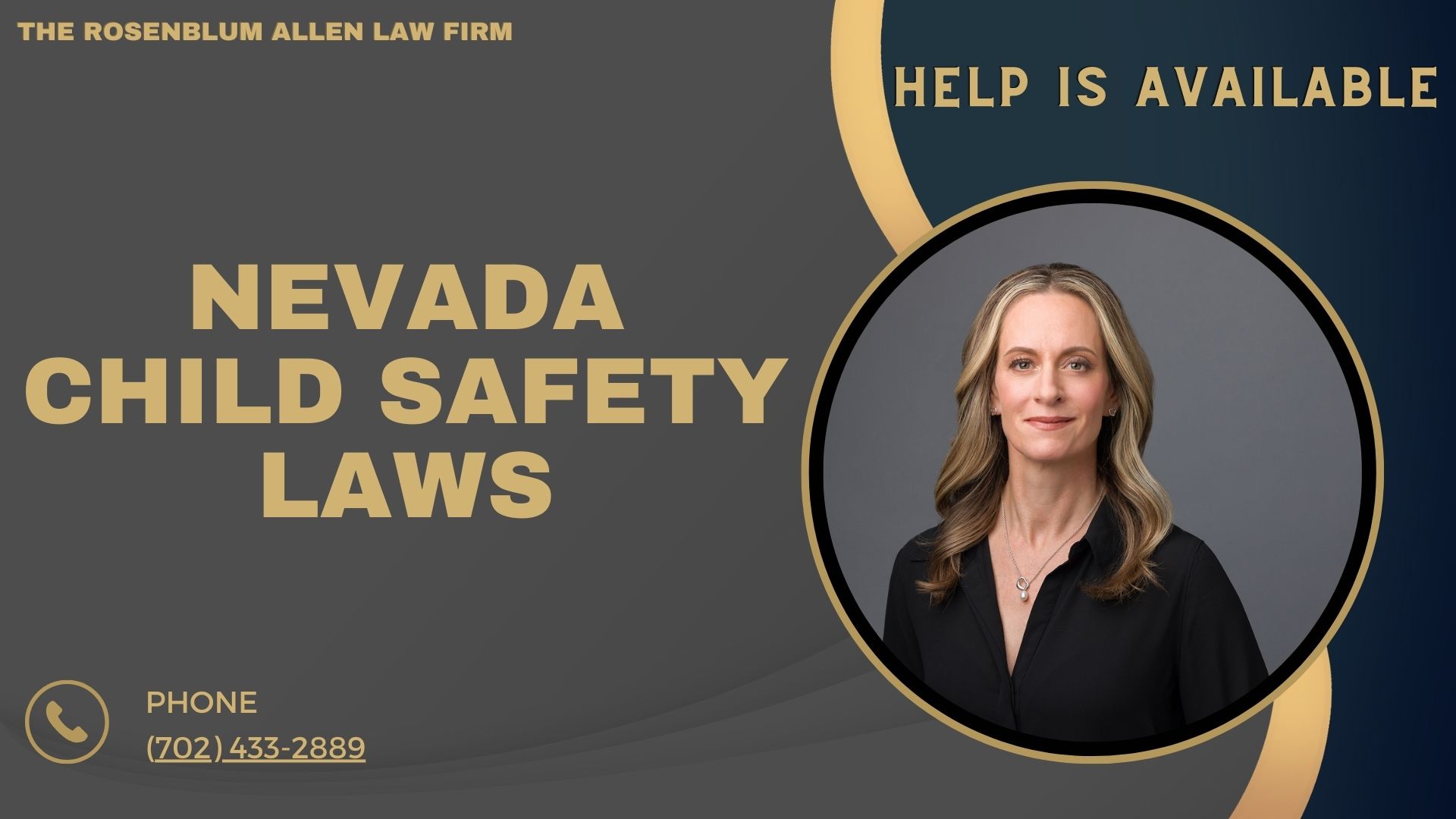Keeping our children safe is a top priority for every parent and guardian. In Nevada, specific child safety laws protect our young ones in various aspects of their daily lives. From car seats to internet safety, understanding these laws helps ensure children grow up in a safe environment.
Understanding Nevada Child Safety Laws
Nevada child safety laws are designed to protect children from harm and ensure their well-being. These laws cover various areas, including transportation, supervision, and online safety. Key agencies like the Nevada Department of Health and Human Services and local law enforcement are responsible for enforcing these laws.
Car Seat and Booster Seat Laws
Car accidents are a leading cause of injury and death among children. Nevada has strict laws regarding car and booster seats to keep children safe on the road.
Overview of Nevada’s Car Seat Laws
Nevada law requires children to be secured in an appropriate car seat or booster seat until they meet specific age, weight, and height requirements. Here are the main points:
- Infants must be in a rear-facing car seat until they are at least one year old and weigh at least 20 pounds.
- Toddlers should use a forward-facing car seat with a harness until they outgrow it.
- Children should transition to a booster seat until they are at least six or weigh 60 pounds.
Transitioning to Booster Seats
Once children outgrow their forward-facing car seat, they should use a booster seat. The booster seat ensures the seat belt fits correctly over the child’s shoulder and lap, providing better protection in a crash.
Penalties for Non-Compliance
Failing to comply with Nevada’s car seat laws can result in fines and points on your driving record. More importantly, it puts your child’s safety at risk.

Bicycle Helmet Laws
Bicycling is a fun and healthy activity for children, but staying safe is essential. Nevada has specific laws regarding bicycle helmet use to protect children from head injuries.
Importance of Bicycle Helmets for Child Safety
Helmets can reduce the risk of head injuries by up to 85%. Wearing a helmet is a simple way to protect your child when they’re on a bike.
Specific Helmet Requirements for Children in Nevada
- Children under 18 must wear a helmet while riding a bicycle.
- The helmet must fit properly and be securely fastened.
Penalties for Non-Compliance
Parents can face fines if their child is caught riding without a helmet. More importantly, riding without a helmet significantly increases the risk of severe injury.
School Bus Safety Regulations
School buses are one of the safest ways for children to travel to and from school. Nevada has regulations to ensure school bus safety.
Safety Measures for Children on School Buses
- Seating: Children should remain seated and facing forward.
- Behavior: No yelling or distracting the driver.
- Exiting: Children should only exit the bus at their designated stop.
Responsibilities of School Bus Drivers and Schools
Bus drivers must follow strict safety protocols, including regular training and adherence to traffic laws. Schools are responsible for ensuring that buses are well-maintained and safe for children.
Legal Requirements for School Bus Design and Maintenance
Nevada law mandates specific design and maintenance standards for school buses, such as:
- Regular inspections to ensure safety features are functioning.
- Emergency exits must be accessible and marked.
- Safety equipment like seat belts (where applicable) and first aid kits must be present.
Parents, guardians, and schools can work together to keep children safe in various situations by understanding and following these laws. The following sections will delve into child abuse laws, supervision regulations, and more, ensuring a comprehensive understanding of Nevada’s child safety laws.

Child Abuse and Neglect Laws
Protecting children from abuse and neglect is a crucial aspect of child safety laws in Nevada. Understanding these laws helps identify and prevent harm to children.
Definition and Examples of Child Abuse and Neglect
Child abuse and neglect encompass various harmful behaviors. Here are the definitions and examples:
- Physical Abuse: Hitting, shaking, or burning a child.
- Emotional Abuse: Constantly criticizing, threatening, or rejecting a child.
- Sexual Abuse: Engaging a child in sexual activities.
- Neglect: Failing to provide basic needs like food, shelter, medical care, or supervision.
Mandatory Reporting Requirements
In Nevada, certain professionals are required by law to report suspected child abuse or neglect. These mandatory reporters include:
- Teachers and school personnel
- Healthcare providers
- Social workers
- Law enforcement officers
Failure to report can result in penalties.
Procedures for Reporting Suspected Abuse or Neglect
If you suspect a child is being abused or neglected, here’s what you can do:
- Call the Authorities: Contact local law enforcement or the Nevada Division of Child and Family Services (DCFS).
- Provide Details: Give as much information as possible, such as the child’s name, age, and the nature of the suspected abuse.
- Follow-up: In some cases, you should provide a written report.
Legal Consequences of Child Abuse and Neglect
Child abuse and neglect are severe offenses in Nevada. Legal consequences can include:
- Criminal Charges: Offenders can face felony charges, leading to prison time.
- Loss of Custody: Parents or guardians found guilty of abuse may lose custody of their children.
- Fines and Penalties: Financial penalties can also be imposed.

Child Supervision Laws
Knowing when and how to supervise children is essential for their safety. Nevada has specific guidelines on child supervision.
Legal Age Requirements for Leaving Children Home Alone
Nevada does not have a specific legal age for when a child can be left home alone. However, guidelines suggest:
- Children under ten should not be left alone.
- Children aged 10-12 can be left alone for short periods if they are mature and know what to do in emergencies.
- Children aged 13 and older can be left alone for extended periods, but it is essential to ensure they feel comfortable and know how to handle emergencies.
Guidelines for Babysitting and Child Supervision
When choosing a babysitter or supervising children, consider these points:
- Age and Maturity: Ensure the babysitter is mature and responsible enough for the task.
- Training: Babysitters with first aid and CPR training are preferable.
- Emergency Contacts: Provide a list of emergency contacts and instructions.
Potential Penalties for Inadequate Supervision
Failing to provide adequate supervision can result in:
- Legal Action: Parents can face charges of neglect.
- Intervention by Child Protective Services: CPS may intervene if a child’s safety is at risk.
- Fines and Penalties: Financial penalties may also be imposed.
Internet and Social Media Safety
The Internet is a valuable tool for learning and entertainment but also poses risks. Nevada laws and guidelines help protect children online.
Importance of Protecting Children Online
Children are vulnerable to various online dangers, including:
- Cyberbullying: Being bullied through digital platforms.
- Predators: Strangers who may try to exploit children.
- Inappropriate Content: Exposure to harmful or unsuitable material.
Laws Regulating Children’s Use of the Internet and Social Media
Nevada has laws to help protect children online:
- Parental Control Software: Schools and libraries are required to use filtering software to block harmful content.
- Education Programs: Schools must educate students about online safety.
Parental Responsibilities and Best Practices for Online Safety
Parents play a critical role in keeping children safe online. Here are some tips:
- Monitor Online Activity: Keep an eye on the websites your child visits and the apps they use.
- Set Rules: Establish clear rules about internet usage, including time limits and acceptable behavior.
- Teach Safety: Educate your child about the dangers of sharing personal information online.
Understanding and implementing these child safety laws and guidelines can create a safer environment for our children. Stay tuned for the following sections, covering firearm safety, swimming pool regulations, and more.

Firearm Safety and Children
Firearm safety is a critical concern for families with children. Proper storage and handling can prevent tragic accidents. Nevada has specific laws to ensure firearms are kept safely away from children.
Overview of Firearm Safety Laws Affecting Children
Firearm safety laws in Nevada aim to prevent children from accessing guns. Key points include:
- Safe Storage: Firearms must be stored to prevent children from gaining access.
- Education: Adults should educate children about the dangers of firearms.
Safe Storage Requirements for Firearms in Homes with Children
Safe storage is crucial to prevent accidents. Here are the requirements:
- Locking Devices: Use trigger locks or cable locks to secure firearms.
- Locked Containers: Store guns in locked containers, such as gun safes or lockboxes.
- Separate Ammunition: Store ammunition separately from firearms in a locked container.
Penalties for Non-Compliance
Failing to comply with firearm safety laws can result in severe consequences:
- Criminal Charges: Adults can face charges if a child accesses an unsecured firearm.
- Fines: Financial penalties can be imposed for non-compliance.
- Increased Liability: In an accident, adults may face increased legal liability.
Swimming Pool Safety Regulations
Swimming pools provide fun and exercise but pose risks, especially for young children. Nevada has laws to ensure swimming pool safety.
Importance of Swimming Pool Safety for Children
Drowning is a leading cause of accidental death among young children. Proper safety measures can prevent these tragedies.
Legal Requirements for Residential Swimming Pools
Nevada law mandates specific safety features for residential swimming pools:
- Fencing: Pools must be surrounded by a fence at least 4 feet high, with a self-closing, self-latching gate.
- Covers: Use pool covers when the pool is not in use.
- Alarms: Install pool alarms to alert you if someone enters the pool area.
Safety Measures and Recommendations
In addition to legal requirements, here are some recommended safety measures:
- Supervision: Always supervise children when they are near the pool.
- Swimming Lessons: Enroll children in swimming lessons to teach them water safety.
- CPR Training: Ensure that caregivers and family members are trained in CPR.

Playground Safety Standards
Playgrounds are a great place for children to play and socialize. However, safety standards must be met to prevent injuries.
Overview of Safety Standards for Playgrounds
Nevada has established safety standards to ensure playgrounds are safe for children:
- Equipment Design: Playground equipment must be designed to minimize hazards.
- Maintenance: Regular maintenance is required to keep playgrounds in safe condition.
- Surfaces: Playgrounds must have impact-absorbing surfaces, such as rubber mats or mulch.
Requirements for Playground Equipment and Maintenance
To meet safety standards, playgrounds should have:
- Secure Anchoring: Equipment must be securely anchored to prevent tipping.
- Regular Inspections: Conduct regular inspections to identify and fix hazards.
- Safe Spacing: Ensure adequate spacing between equipment to avoid collisions.
Responsibilities of Schools and Public Parks
Schools and public parks must maintain safe playgrounds. Their responsibilities include:
- Routine Checks: Perform routine checks and maintenance.
- Safety Training: Train staff on playground safety procedures.
- Reporting: Establish a system for reporting and addressing safety concerns.
Following these guidelines and legal requirements can create safer environments for children to play, swim, and grow. Stay tuned for the following sections, covering child labor laws and emergency preparedness.
Child Labor Laws
Child labor laws are in place to protect children from exploitation and to ensure their safety while working. Nevada has specific regulations to safeguard young workers.
Age and Work Hour Restrictions for Child Employment
Nevada sets clear guidelines for the age and working hours of children:
- Under 14: Generally not allowed to work, with some exceptions for family businesses or entertainment.
- Ages 14-15: Can work in non-hazardous jobs. They are limited to 3 hours on a school day and 18 hours per week. During vacations, they can work up to 8 hours a day and 40 hours a week.
- Ages 16-17: Can work up to 4 hours on a school day and 28 hours a week. During vacations, they can work up to 8 hours a day and 48 hours a week.
Permissible Types of Work for Children
Specific jobs are suitable for children, while others are restricted due to safety concerns. Permissible work includes:
- Babysitting: Informal, casual babysitting is allowed.
- Retail: Non-hazardous retail jobs like cashiering or stocking shelves.
- Office Work: Filing, typing, and other non-hazardous office duties.
Restricted jobs include:
- Construction: Operating heavy machinery or working at heights.
- Manufacturing: Working with hazardous materials or equipment.
- Mining: Any work in or around mines.
Enforcement and Penalties for Violations
Violating child labor laws can lead to severe consequences:
- Fines: Employers can face hefty penalties for non-compliance.
- Legal Action: Repeated or severe violations can result in criminal charges.
- Business Licenses: Employers may lose their business licenses if found guilty of child labor violations.
Emergency Preparedness for Families
Emergency preparedness is crucial to ensure the safety and well-being of children and families. Knowing how to respond to emergencies can save lives.
Importance of Emergency Preparedness
Emergencies can happen at any time. Being prepared can reduce panic and improve response times, helping to protect children and families.
Recommended Safety Measures for Families
Here are some steps to ensure your family is prepared for emergencies:
- Emergency Plan: Create and practice an emergency plan. Include evacuation routes and meeting points.
- Emergency Kit: Keep a kit with essentials like water, food, medications, and first aid supplies.
- Communication Plan: Plan how family members will contact each other during an emergency.
Legal Requirements for Emergency Preparedness in Schools and Childcare Facilities
Schools and childcare facilities must follow specific legal requirements to ensure children’s safety:
- Drills: Regularly conduct fire drills, earthquake drills, and lockdown drills.
- Emergency Supplies: Maintain a stock of emergency supplies, including first aid kits, water, and non-perishable food.
- Safety Plans: Develop and maintain comprehensive safety plans, including evacuation procedures and communication strategies.

Resources for Parents and Guardians
Access to the right resources can help parents and guardians better protect their children. Below are some valuable resources.
List of Organizations and Resources for Child Safety
- Nevada Department of Health and Human Services: Offers child safety and welfare resources and information.
- Safe Kids Worldwide: Provides safety tips and resources to prevent childhood injuries.
- National Center for Missing & Exploited Children: Offers resources for preventing and responding to child abduction and exploitation.
Contact Information for Reporting and Assistance
If you need to report child abuse neglect, or need assistance, contact:
- Nevada Child Protective Services: [Phone Number]
- National Child Abuse Hotline: 1-800-4-A-CHILD (1-800-422-4453)
- Local Law Enforcement: Dial 911 for emergencies.
Educational Programs and Materials on Child Safety
Several organizations offer educational programs and materials to help parents and children learn about safety:
- Red Cross: Provides first aid and emergency preparedness courses.
- American Academy of Pediatrics: Offers resources on child health and safety.
- Local Libraries and Community Centers Often host workshops and provide materials on various safety topics.
By understanding and utilizing these child safety laws and resources, parents and guardians can better protect their children and ensure their well-being. This comprehensive guide is designed to help you navigate the many aspects of child safety in Nevada, providing peace of mind and a safer environment for your family.

Breaking It All Down
Ensuring the safety of children is a shared responsibility that involves parents, guardians, schools, and the community. Nevada’s child safety laws cover many areas, from car seat regulations and internet safety to child labor laws and emergency preparedness. Understanding and adhering to these laws can create a safer environment for our children to grow and thrive.
Staying informed and proactive is key. Review and update safety measures regularly, educate children about potential dangers, and utilize available resources and support networks. Together, we can protect our children from harm and provide them with the safe, nurturing environment they deserve.
Remember, keeping our children safe is not just about following the law but caring for their daily well-being. Let’s work together to make Nevada safer for all our children.

Frequently Asked Questions
What are the penalties for failing to follow Nevada's car seat laws?
Failing to comply with Nevada’s car seat laws can result in fines and points on your driving record. More importantly, non-compliance puts your child’s safety at risk, potentially leading to severe injury in an accident.
At what age can children ride in the front seat of a car in Nevada?
In Nevada, children are generally required to ride in the back seat until they are 12 years old. It’s safer for younger children to sit in the back seat because it provides better protection in a collision.
What should I do if I suspect a child is being abused or neglected?
If you suspect a child is being abused or neglected, you should immediately contact local law enforcement or the Nevada Division of Child and Family Services (DCFS). Provide as much information as possible to help authorities investigate the situation.
Are there any exceptions to child labor laws for family businesses?
Yes, there are exceptions for family businesses. Children may work in a family-owned business, provided the work is non-hazardous and does not interfere with their schooling. However, specific regulations still apply to ensure the child’s safety.
How can I teach my child about online safety?
Teaching your child about online safety involves:
- Discussing the risks of sharing personal information.
- Recognizing and avoiding cyberbullying.
- Understanding the importance of privacy settings.
Encourage open communication and regularly monitor their online activities.
What should be included in a family's emergency preparedness kit?
A family’s emergency preparedness kit should include essentials such as water, non-perishable food, medications, first aid supplies, flashlights, batteries, important documents, and emergency contacts. Including items like blankets, a multi-tool, and hygiene products is also helpful.
How often should schools conduct emergency drills?
Nevada schools are required to conduct regular emergency drills, including fire, earthquake, and lockdown drills. These drills should be held multiple times throughout the school year to ensure students and staff are familiar with emergency procedures.
Are there specific safety standards for home playground equipment?
Yes, home playground equipment should meet safety standards to minimize the risk of injury. This includes secure anchoring, regular maintenance, and the use of impact-absorbing surfaces like rubber mats or mulch to prevent injuries from falls.
What are the legal requirements for pool fencing in Nevada?
Nevada law requires residential swimming pools to be surrounded by a fence at least 4 feet high with a self-closing, self-latching gate. These measures help prevent unsupervised access by children, reducing the risk of drowning accidents.
How can I find CPR training courses in my area?
Various organizations, including the American Red Cross, local hospitals, community centers, and fire departments offer CPR training courses. You can find courses by visiting their websites or contacting them directly for schedules and registration information.
What resources are available for parents struggling with child safety concerns?
Several resources are available for parents, including the Nevada Department of Health and Human Services, Safe Kids Worldwide, and the National Center for Missing & Exploited Children. These organizations offer information, support, and educational materials on child safety.
Can teenagers work night shifts in Nevada?
Teenagers aged 16-17 can work night shifts, but restrictions exist. They cannot work during school hours and are limited in how many hours they can work per week during the school year. Employers must ensure that work does not interfere with the teenager’s education.
What should I do if my child is being bullied at school?
If your child is being bullied, report the issue to school authorities immediately. Document the incidents and communicate with teachers and administrators to develop a plan to address and stop the bullying. Support your child by listening and providing reassurance.

Additional Resources for You from The Rosenblum Allen Law Firm.
- Las Vegas Family Law Attorneys: Learn about our comprehensive family law services in Las Vegas.
- Family Court Las Vegas: Get detailed information about the family court system in Las Vegas.
- Common Law Marriage in Nevada: Understand the rules and regulations regarding common law marriage in Nevada.
- Name Change Las Vegas: Find out how to legally change your name in Las Vegas.
- Nevada Power of Attorney: Learn about the importance and process of establishing a power of attorney in Nevada.
- How to File a Motion in Family Court: Step-by-step guidance on filing motions in family court.
- Family Court Mediation: Explore how mediation can help resolve family court disputes.
- Unbundled Attorney: Learn about the benefits of hiring an unbundled attorney for specific legal services.
- Nevada Adoption: Comprehensive information on the adoption process in Nevada.
These resources are designed to provide you with the knowledge and support you need to navigate various legal challenges effectively.

Offsite Resources for You
Here are some additional offsite resources that you may find useful:
- American Academy of Pediatrics: A trusted source for child health and safety information.
- Safe Kids Worldwide: An organization dedicated to preventing childhood injuries.
- KidsHealth: Provides reliable health information for parents, kids, and teens.
- Centers for Disease Control and Prevention (CDC): Offers extensive information on child safety and health.
- National Center for Missing & Exploited Children: A resource for preventing and responding to child abduction and exploitation.
- National Safety Council: Provides information on various safety topics, including child safety.
- HealthyChildren.org: A resource by the American Academy of Pediatrics, offering health and safety information for children.
These resources can provide additional guidance and support to help you ensure the safety and well-being of your children.

A Special Message from Our Lead Attorney, Molly Rosenblum Allen, Esq

Dear Reader,
Thank you for taking the time to read through these resources. I hope you found the information helpful and empowering. If you have any questions or need assistance with your legal matters, please don’t hesitate to reach out.
My team and I at The Rosenblum Allen Law Firm are here to support you. Call us at (702) 433-2889 to get the ball rolling on your situation. We look forward to helping you navigate through your legal challenges.
Best regards,
Molly Rosenblum Allen, Esq.






